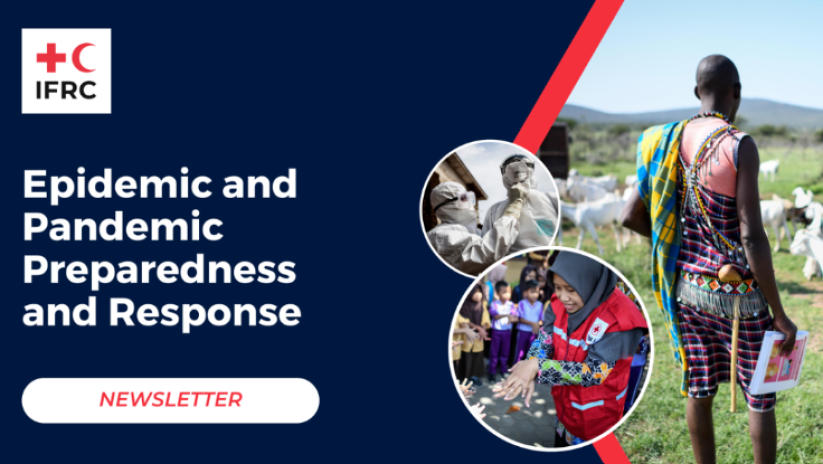
SOMALIA: Training volunteers to identify potential disease alerts has paid off
The Somali Red Crescent Society, with support from the Norwegian Red Cross trained more than 100 volunteers in epidemic preparedness, response and community-based surveillance (CBS) in the Mudug region. As a result, these volunteers have detected numerous infectious diseases since the project began and have successfully collaborated with the Ministry of Health to prevent large-scale outbreaks. You can read more about the early actions taken to halt the rotavirus, rubella, and dengue outbreaks this year on IFRC’s new Community-Based Surveillance website.
UGANDA: 45,600 children vaccinated against measles and rubella
In May 2023, Uganda Red Cross volunteers identified 16 suspected cases of measles in Bundibugyo through community-based surveillance. They worked with the Ministry of Health in mobilizing communities for a mass measles and rubella vaccination campaign in the district. Read more
KENYA: Students learn about epidemic prevention and control
Young learners have become champions in preventing, detecting, and responding to disease outbreaks. Kenya Red Cross is working with school health clubs, training them on hygiene practices, waste disposal and epidemics like anthrax, rabies and trachoma. They engage learners who carry on the message of hygiene practices and environmental protection to their families and communities. Watch short videos on the educational activities they implement in Narok and Bomet counties.
INDONESIA: Community public health risk mapping
In August 2023, the Indonesian Red Cross completed community risk mapping for all villages participating in the Community Epidemic and Pandemic Preparedness Programme. These maps are used to identify the most urgent public health issues and needs and critical resources such as Primary Health Care (PHC) facilities, emergency vehicles, access roads, and shelters. This information enables a more effective response to outbreaks and epidemics.



